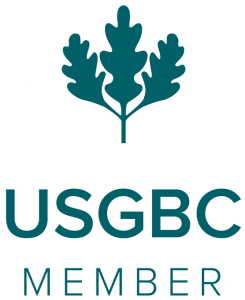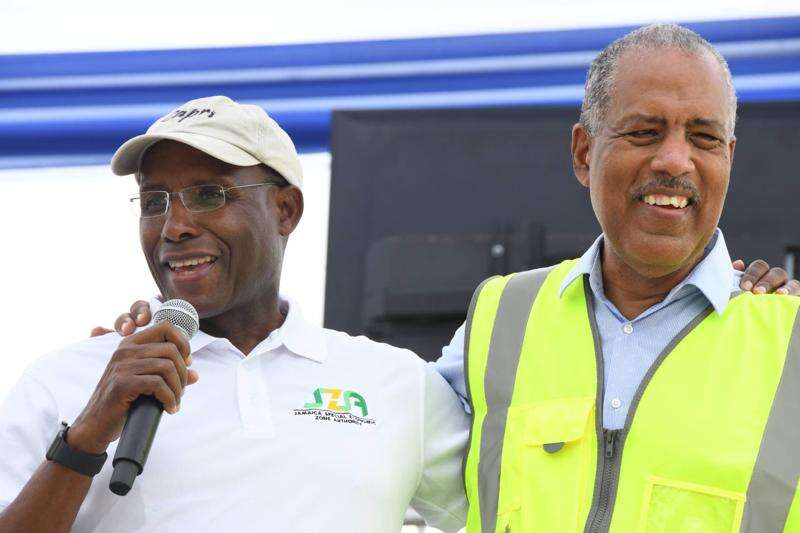WHILE Jamaica continues to transform itself into a strategic destination point for logistics, delegates from the 2022 World Free Zones Organization Annual International Conference and Exhibition (AICE) gave Jamaica praise for the organisation of the event and economic opportunities from the expansion of its special economic zones (SEZs).
The delegates gave their comments last Thursday as part of a tour of the proposed 650-acre Caymanas SEZ and associated logistic points from the Kingston Freeport Terminal to Port Royal. The conference was held from June 13 to 17 at the Montego Bay Conference Centre.
“I visit this wonderful country, Jamaica. I love it,” said minister of economic development of state in Qintana Roo, Mexico, Rosa Elena Lozano Vazquez, on her impression of the country as she enjoyed a chicken patty.
Free zones are usually defined areas where goods can be stored and received with a reduction in associated fees by the local authorities. SEZs approved by the Jamaica Special Economic Zone Authority (JSEZA) benefit from asset tax, income tax and customs duty relief.
“It’s been very interesting. All the speakers, organisers, personalities and meeting with businesses. Jamaica is a strategic place for logistics and unites Mexico with other Caribbean islands. The economic free zone is very important for the people and economies of countries. Incentives are necessary for the attraction of investors,” she added on the relevance of free zones.
Mexico is an industrial North American country which manufactures a variety of goods and benefits from the United States-Mexico-Canada Agreement. Several tourism and industrial businesses in Jamaica are owned by Mexican firms.
The proposed Caymanas SEZ would give investors who lease the facilities the ability to derive significant economic benefits including no taxes on profits nor dividends. This would be done under a 50-year lease agreement where the firms would be able to bring in necessary equipment without any fees once it is not sold back in Jamaica. The applications for the development of the SEZ is being drafted for National Environment and Planning Agency (NEPA) approval, while procurement has started for the detailed design to begin the construction phase.
Delegates and attendees at the event were able to see from an elevated view, the surrounding environment including the Jamaica Pegasus hotel in New Kingston and other major focal points such as the port area. Minister of Industry, Investment and Commerce Senator Aubyn Hill touted the presence of the Mandela Highway, educated workforce in St Catherine and rule of law with the Privy Council being Jamaica’s final appellate court.
Some notable attendees included founder, president and chief executive officer (CEO) of Cornerstone United Jamaica Holdings Limited Paul Simpson and Myers, Fletcher and Gordon associate Jezeel Martin. The delegates went to view four different prospective sites in Trelawny on Friday.
The wetlands surrounding the Caymanas SEZ will be maintained and left undisturbed according to Hill. Numerous companies have setup manufacturing outfits in the last decade with companies such as Sygnus Real Estate Finance Limited planning to invest US$6-10 million in the construction of a 55-acre industrial park in the Lakes Pen area.
CEO of the Malaysian Port Klang Free Zone Loh Chee Chan welcomed the insights and experience he gained from the conference while being in Jamaica.
“We started our free zone 17 years ago and we’re fully developed with our business in full swing. Now, we are looking at expansion to find another piece of land or location where we can expand our business. The only challenge we see is the distance from Malaysia,” he added as it took two days to arrive to Jamaica.
However, he shared that the free zone experience has been rewarding especially as the Port Klang location is fully utilised by more than 170 firms. He also believed that Jamaica was a good prospect for various investors.
“We developed our free zone over 1,000 acres of land. The tenants who lease the land from us will develop for the purpose of warehousing for their own use. We developed a standard warehouse which comprises of 500 units for shorter terms. People lease the warehouse to store their goods on a short-term basis. We also have office blocks where we use it for e-commerce and IT purposes,” he explained.
While the Port Authority of Jamaica (PAJ) looks to invest US$40-60 million in infrastructure for the Caymanas SEZ, other companies such as Kingston Wharves Limited are matching a similar spend to ramp up its operations to handle the growing demand. It’s investing US$60 million in the redevelopment of Berth 7 and construction of the Integrated Modular Logistics Complex at Ashenheim Road. The company listed this in its 2021 annual report as part of its plan to attract global distributors and manufacturers who can also benefit from its SEZ designation and an efficient location to handle business.
The PAJ owns five free zones with the last major launch being the 203,000 square feet Portmore Infomatics Park, which is managed by the Kingston Free Zone Company Limited. It has developed the Kingston Logistics Park which has more than 200,000 sq ft of space. Three clients are already on board with an additional 50,000 space available. Operations and Customer Relations Manager Glenice Leachman described the facility as the first in the hemisphere for near port logistics.
“We’ve been here since last week. We have been very busy exchanging experiences with SEZ delegates who are here. For example, how do we develop our SEZ’s in Kenya, how do they develop their SEZ’s in their countries and what kind of investors they have been able to attract. Through sharing of experiences, we’re helping to broaden our spectrum of knowledge in how we can improve programmes back to our countries,” said CEO of the Kenya Special Economic Zones Authority Dr Meshack Kimeu Sammy on his experience in Jamaica so far.
Apart from highlighting the creation of jobs in the country, Dr Sammy noted how universities have realigned themselves to meet the relevant skills and needs of international investors. He also pointed to the benefits of how it supports local farmers in their associated communities.
“We have been able to make good development in the progress of our SEZs. They are at various stages of development. We have been able to put in the right infrastructure and attracted investors. We now have companies manufacturing and exporting goods to international markets. The SEZs have been able to contribute significantly to the social and economic development of our country through job creation and backwards linkage with the domestic economy. Because those investors are coming with new technologies, they train locals which results in a lot of skills being transferred from the foreign investors to the local Kenyan workers. It enables the universities to produce the right graduates for these companies who are going to manufacture various products,” he closed.
Source: https://www.jamaicaobserver.com/business/ready-to-invest/




